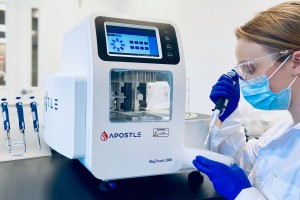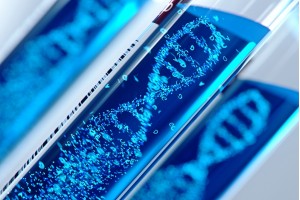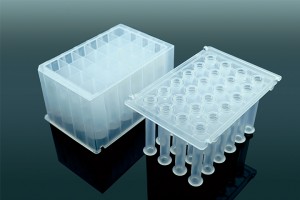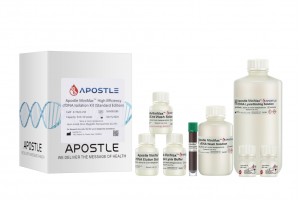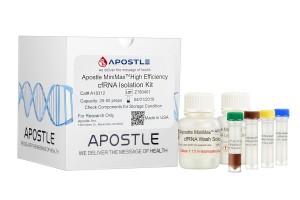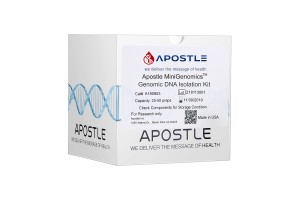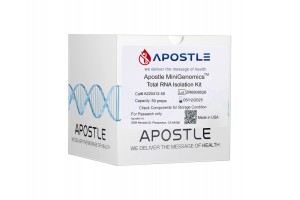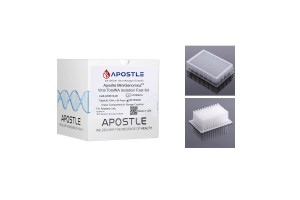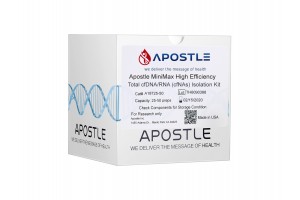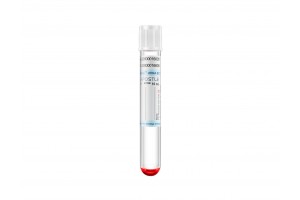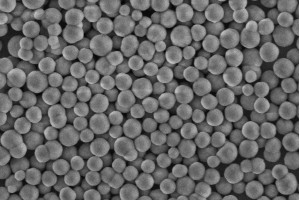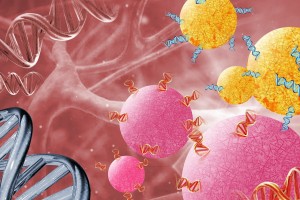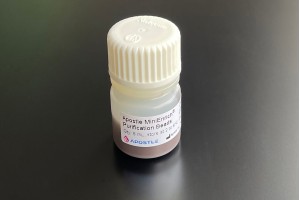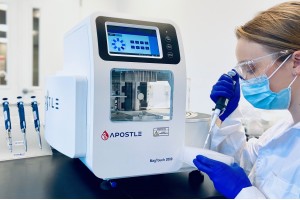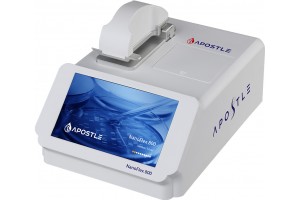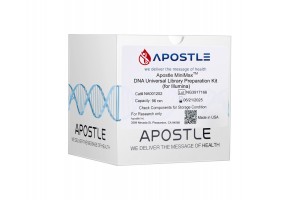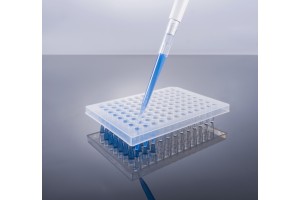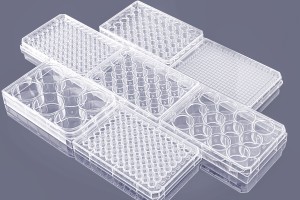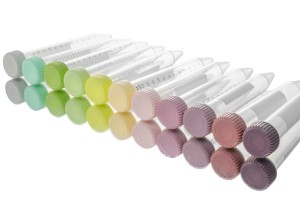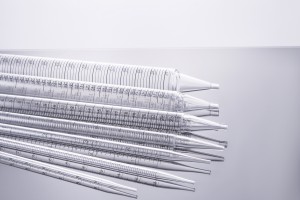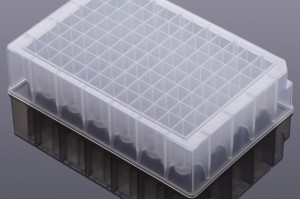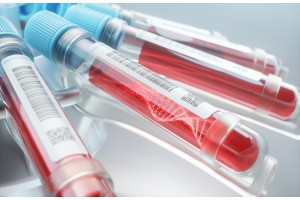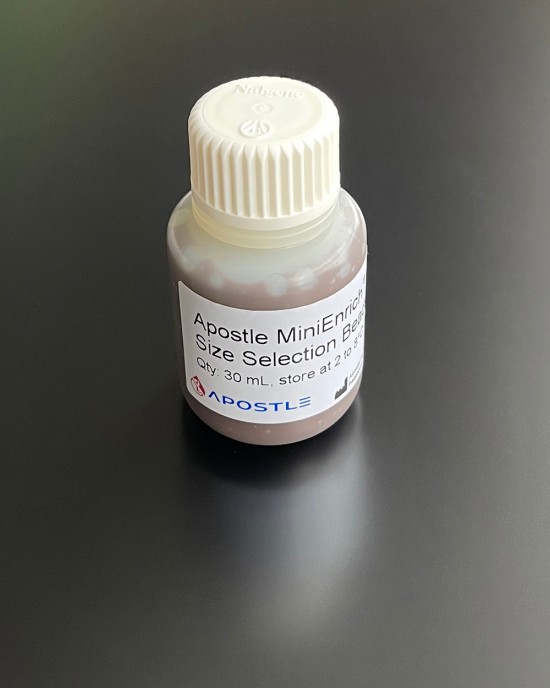
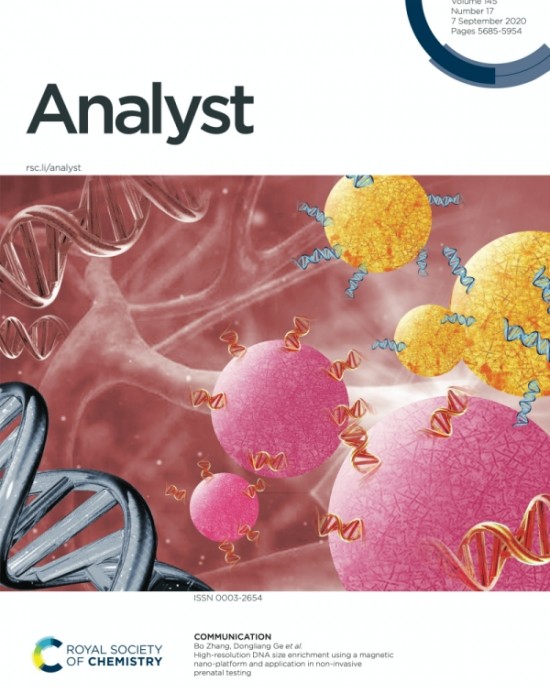


Secured Shopping
Best security features
Apostle MiniEnrich Carboxyl Beads for Size Selection (30mL) (SPRI alternative)
Next-generation purification, size selection, and long-read size selection.
The Apostle MiniEnrich Size Selection Beads is designed for size selection of DNA fragments from a mixture of DNA with various sizes, which potentially benefits downstream assays like NGS and other molecular biology workflows. It can be used on samples before or after DNA fragmentation, ligation, or library amplification during NGS library preparation workflow. With proprietary Apostle MiniEnrich technology, the kit is featured for customized cut-off size, efficient removal of non-target fragments and recovery of target DNA fragments.
- Novel magnetic nanoparticles structure and proprietary surface chemistry.
- Compatible with current workflows.
- Enhanced performance for specific removal of non-target fragments.
- Significantly improved magnetic response for less pelleting time and less beads carry-over.
- This product is an effective alternative to SPRI beads. SPRI is a brand name owned by Beckman Coulter. This product is not manufactured by Beckman Coulter.
Configuration: 30 mL
Cat #: A190606-30
Documentation
Protocol: https://www.apostlebio.com/minienrich/MiniEnrich_Size_Selection.pdf
$200.00


